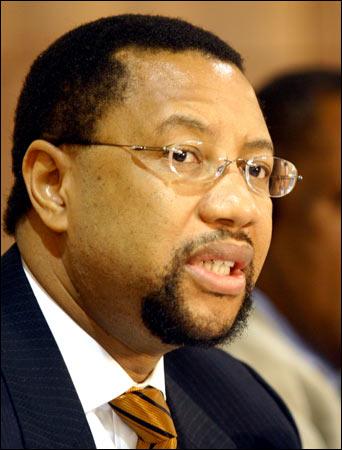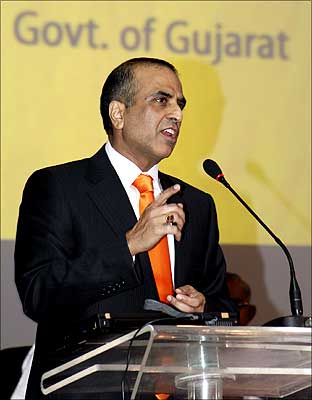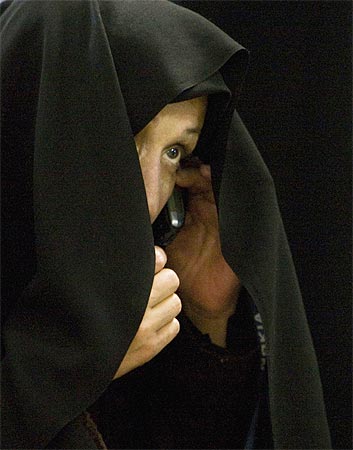 | « Back to article | Print this article |
Men behind the Bharti, MTN merger talks
Roughly one year after the merger talks between the two broke down, Indian telecom giant Bharti Airtel and South African telecom major MTN Group are back at the table discussing a possible $23 billion tie-up.
While talks are still in early stages, the proposed deal, a complex package of cash and stock trades, would witness Bharti take a 49 per cent stake in MTN, while the South African operator would take a 36 per cent stake in India's largest wireless carrier.
The two operators would then comprise the world's third-biggest wireless group, with annual revenues of about $20 billion and a customer base of more than 200 million across India, the Middle East and Africa, ahead of American giants Verizon (122 million customers) and AT&T (108 million customers), among others. In 2008 MTN generated revenues $12.2 billion, while Bharti Airtel generated revenues of $7.7 billion.
A successful deal would also signal India Inc's biggest-ever cross-border M&A deal, at almost twice the $12.2 billion paid by India's Tata Steel to acquire top UK steelmaker Corus Group in January 2007.
The two companies have agreed to discuss the potential merger exclusively with each other through the month of July.
Interestingly, the collapse of negotiations last year actually benefited Bharti, as the deal then required Bharti to pay around $7-8 billion for a 40 per cent stake in MTN. Now they would be paying a net $4 billion for a 49 per cent stake. Here, a look at the public faces of these global telecom majors, the respective chief executive officers. . .
Nhleko, one of Africa's top businessmen
US-educated Phuthuma Nhleko is one of South Africa's most visible and best-known black businessmen. Since taking over as MTN's chief executive in 2002, he has played an integral role in MTN's transformation into a pan-African telecom giant with more than 100 million subscribers, $28.5 in market capitalisation and operations in 21 countries in the Middle East and Africa, such as Nigeria, Cameroon, Ghana, Zambia, Uganda, Iran, Yemen, Syria and Afghanistan, as well as Cyprus.
Much of this expansion has been done at Nhleko's behest.
When he joined the company, MTN was known only as the second-largest mobile group in South Africa. Today it is one of the world's top largest and fastest growing telecom companies. Instrumental in this growth has been Nhleko, who in 2006 spearhead MTN's $5.5 billion acquisition of Investcom, which significantly increased MTN's presence in the Middle East.
Today, despite all the international growth and despite topping the 100-million customer base mark in April, MTN remains number two in its home country, where Vodacom has more subscribers. Still, the 49-year-old Nhleko is recognised as an adroit dealmaker with a global vision.
Before joining MTN, he was educated as an engineer and worked as a financier. He also founded and served as chief executive of Worldwide Africa Investment, in which he is still a majority shareholder.
Sunil Mittal, one of the world's richest men
A politician's son -- his father Sat Paul Mittal was an Indian Member of Parliament -- Sunil Mittal has always displayed a proclivity for business. Today, the 51-year-old founder, owner and chairman of Bharti Airtel is worth over $10 billion, making him one of the world's richest men.
In 1976, when he was just 18 years of age, he took a loan from his father to set up a cycle parts business in Punjab. From there, he moved on to become the exclusive dealer for Suzuki Motors's portable electric-power generators, importing them from Japan.
During the 1980s, he lobbied the then socialist Indian government to allow private firms to manufacture landline telephone sets, and was the first to enter this booming business.
From that point onwards, Mittal saw the Indian telecom industry as a lucrative yet untapped market. He helped push for reform and, in 1995, began offering mobile services in the capital city of Delhi.
Today, in India, his company has an almost 25 per cent share of the wireless services market, followed by Reliance Communications and Vodafone, both of which own 17 per cent of the market.
Bharti recently announced that it had passed the 100-million customer base mark.
Will Bharti Airtel become a true global giant?
The duo -- Sunil Mittal and Phuthuma Nhleko -- first discussed a merger last year, during April and May 2008, and almost struck a deal before the talks dissolved. MTN then initiated talks with India's second-largest operator, Reliance Communications.
However, the deal died amid rumours of a feud between Reliance Communications chairman, Anil Ambani, and older brother, Mukesh, who allegedly invoked the 'first right of refusal' stipulation that the two had agreed upon when they split ways in 2005.
But now talks have re-opened and there is excitement that a deal is coming together. MTN's Nhleko has reportedly said the deal, "addresses our strategic imperative of becoming one of the pre-eminent emerging market telecommunications companies with leading positions in three of the fastest-growing wireless markets globally with no overlapping footprint."
Mittal, for his part, said that the discussion of a transaction was still in its infancy and that there was no guarantee of a deal going through. He added that the structure and terms could be adjusted in the future.
While Bharti is likely to take on some significant debt if the deal goes through, analysts are calling the potential move a massive and necessary step that Bharti must make to become a truly global telecom giant.
Shares of Bharti Airtel rose 3 per cent yesterday in reaction to the news.



